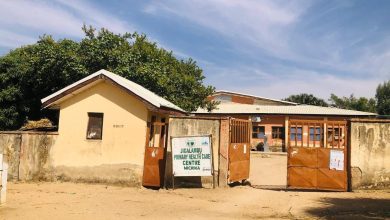HumAngle Foundation Journalism Workshop: Experts Highlight Efficiency in Trauma-Sensitive Reporting
As the HumAngle Foundation’s workshop on peacebuilding and security for 15 journalists in Nigeria continues, participants are exposed to trauma-sensitive reporting, the ethical practices in conflict reporting, and accountability journalism for peacebuilding.

The HumAngle Foundation’s workshop, “Advancing Peace and Security Through Journalism” has entered its second day with an in-depth session on conflict/trauma-sensitive reporting, risk assessment, stress management, and accountability reporting for peacebuilding.
The sessions were aimed at equipping participants with the tools to navigate the complexities of reporting in conflict zones while promoting peace and accountability.
The workshop, supported by the National Endowment for Democracy (NED), has brought together 15 journalists from across Nigeria to explore innovative approaches to peacebuilding and security reporting, while bridging the gap in conflict reporting.
Today’s session emphasised the importance of human-centred storytelling and the ethical considerations required when reporting on sensitive issues. One of the facilitators, Aliyu Dahiru, the Head of the Radicalism and Extremism Desk of HumAngle Media, emphasised the need for participants to adopt a nuanced approach when reporting on conflict-sensitive issues.
“It’s not just about the events but understanding the underlying factors and the human stories behind them. Journalists have a responsibility to avoid sensationalism and instead focus on fostering dialogue and understanding,” he said.

During her sessions, Hauwa Shaffii Nuhu, Managing Editor of HumAngle Media, said that while it is important for journalists to engage in risk assessment before travelling to conflict-affected communities, media organisations must have risk assessment policies aimed at protecting their team members covering hostile environments.
She also highlighted the importance of trauma reporting in a bid to build professional and healthy relationships with sources who choose to tell their stories with elements of trauma, distress or grief.
“Risk assessment ensures that precautionary measures are taken before and during field trips. Doing this will help ensure the safety of journalists, especially those covering conflict-affected areas. Also, newsrooms should have a mental health support system for their team members to help address trauma.”
On the area of accountability journalism for peacebuilding, Ibrahim Adeyemi, Acting Investigations Editor at HumAngle, underscored its pivotal role in peacebuilding efforts. He further emphasised the need for journalists to approach their work with integrity and diligence by utilising the Freedom of Information Act (FOI) in holding power to account.

“Accountability journalism is about holding power to account and ensuring transparency in governance and conflict resolution processes. By exposing corruption, human rights abuses, and systemic failures, journalists can drive meaningful change and foster trust within communities.”
“Peace-building requires a foundation of trust, and accountability journalism plays a critical role in building that trust. By shedding light on injustices and amplifying marginalised voices, journalists can contribute to creating a more equitable and peaceful society,” he added.

HumAngle’s Lead Psychologist, Chioma Onyemaobi, advised the participants to take their mental health seriously, especially when covering conflict. She revealed that stress management is crucial not only for their well-being but also for maintaining objectivity and clarity in their reporting.
“Simple practices like mindfulness, taking regular breaks, and seeking professional support when needed can make a significant difference,” the psychologist advised.
Participants engaged in interactive discussions and practical exercises, exploring strategies for peacebuilding, mitigating risks, and fostering understanding in affected communities.
The HumAngle Foundation's workshop, supported by the National Endowment for Democracy, focuses on teaching 15 Nigerian journalists about conflict-sensitive reporting and risk management to enhance peace and security journalism. Sessions emphasized the need for human-centred storytelling and the ethical considerations in conflict reporting, urging journalists to avoid sensationalism and focus on understanding underlying factors.
Hauwa Shaffii Nuhu highlighted the importance of media organizations having risk assessment and mental health support systems to protect journalists in conflict zones. Ibrahim Adeyemi discussed the role of accountability journalism in peacebuilding, emphasizing its importance in holding power to account and fostering community trust.
Additionally, Chioma Onyemaobi stressed the significance of mental health and stress management for journalists working in traumatic conditions, recommending practices like mindfulness to maintain objectivity. Overall, the workshop aimed to equip journalists with strategies for peacebuilding, risk mitigation, and promoting community understanding.
Support Our Journalism
There are millions of ordinary people affected by conflict in Africa whose stories are missing in the mainstream media. HumAngle is determined to tell those challenging and under-reported stories, hoping that the people impacted by these conflicts will find the safety and security they deserve.
To ensure that we continue to provide public service coverage, we have a small favour to ask you. We want you to be part of our journalistic endeavour by contributing a token to us.
Your donation will further promote a robust, free, and independent media.
Donate HereStay Closer To The Stories That Matter




